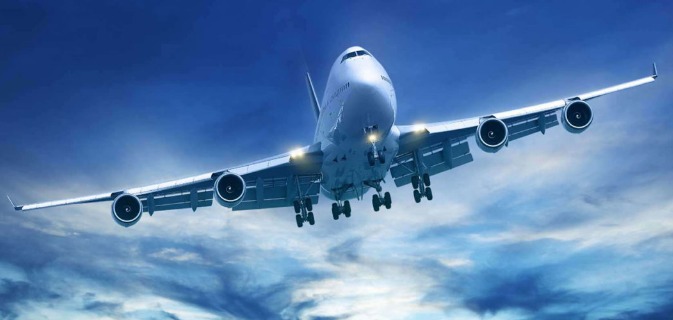Sky One is a multinational conglomerate with a strong impact on all areas of aviation. They have ventured into diverse products and services like- Cargo Charter, Asset Trading, MRO, ACMI, Capacity Optimization, Consultancy, Passenger Airlines, Helicopters, Spare parts, Flight Operations Support, Relief Support, and Venture Capital.
Sky One Group has a portfolio of diverse aviation assets both rotor and fixed wing. It operates Bell412, Mi172 helicopters in India and Indonesia, and Boeing 747 and IL76 in the Middle East, Europe, and China, and Bombardier aircraft in India. It also operates a fleet of Mi-8 helicopters. Sky One has a specialized charter business for passengers going for Hajj and Umrah. It specializes in wet leasing with several leading passengers and global cargo airlines from China, Africa, and the Middle East, making it one of the leading privately-owned aviation companies in the Gulf.

Rashi Bajpai, Sub-Editor at ELE Times had an opportunity to interact with Mr. Jaideep Mirchandani, Group Chairman of Sky One FZE, and discuss various aspects of the global aviation industry and Sky One’s product portfolio and competitive edge.
This is an excerpt from the interview.
ELE Times: How is the aviation sector currently positioned for Sustainable Aviation Fuel (SAF)?
Mr Jaideep: Sustainable Aviation Fuels (SAF) made from biomass or waste-based organic feedstock aim to decrease greenhouse gas emissions in the aviation industry. However, as cited by the World Economic Forum in its 2023 report on SAF (What is SAF and why are only 0.1% of flights powered by it?) there is a need to overcome some key challenges including the substantial cost burden of SAF compared to petroleum jet fuel, the low percentage of global consumption, the necessity for a greater diversity of feedstocks and production methods, and the requirement for a favourable tax policy to incentivize its production.
Many countries are developing strategies for the adoption of SAF. For instance, in January, India’s Civil Aviation Ministry proposed a 1-5% usage of SAF starting in 2027 in alignment with the second phase of the Carbon Offsetting and Reduction Scheme for International Aviation (CORSIA), as suggested by ICAO. Similarly, other major countries have also established SAF volume targets and adoption timelines based on their net zero goals.
Currently, SAF needs to be blended with traditional aviation fuel. Ongoing research aims to use SAF as a direct replacement, eliminating the need for aircraft engine modifications, though this process will take more time.
ELE Times: Tell us about some of the latest technologies and trends that airlines including Sky One are now focusing on to enhance the customer experience.
Mr Jaideep: Today’s passengers seek more than just connectivity; they desire an experience tailored to their individual preferences, right from the moment they book a flight to the time they land. Recognizing the digital sophistication of the new-age passenger, airlines are investing in technology-focused training initiatives to elevate the proficiency of their staff.
This strategic upskilling empowers the workforce to navigate digital platforms and communication tools effectively, ensuring a seamless and user-friendly experience for passengers. At Sky One, our emphasis is also on streamlining operations with a more agile and responsive approach to handling disruptions. We are also leveraging the most efficient communication channels for personalised interactions. I foresee an even more advanced integration of AI not only for customer service but also for predictive maintenance, fuel optimisation, crew scheduling, and revenue management. However, as technology advances, it also brings about potential security and privacy risks, and it is important to effectively manage passengers’ data and ensure their privacy.
ELE Times: What are your views on emerging solutions in “all-electric air mobility service”?
Mr Jaideep: Current reports indicate that many companies are actively developing air taxis and flying cars, with expectations that OEMs will certify them by 2025. Airbus has already announced CityAirbus NextGen, an all-electric, four-seat vertical take-off and landing (eVTOL) prototype based on a lift and cruise concept, featuring an 80-km operational range and a cruise speed of 120 km/h suitable for various flight operations in cities and communities.
In India, the prospects for electric air taxis are bright, as InterGlobe Enterprise, the parent company of IndiGo, has announced plans to launch an all-electric taxi service in 2026 in partnership with the US-based Archer Aviation. Predictions suggest that electric aircraft, capable of taking off like helicopters and flying like airplanes, may enter commercial service by the end of the coming year or early 2026.
As far as my views are concerned, I believe such innovations in aviation are inevitable. However, the air taxi industry may not experience a significant boom until the end of this decade. Initial instances of eVTOL craft are also most likely to be limited to military and cargo applications. Passenger services, I believe, will not only need additional infrastructure facilities but also supportive policy decisions regarding practical applications in urban areas.
ELE Times: Give us a brief overview of your product catalogue, its specifications, and major USP.
Mr Jaideep: Our catalogue includes a wide range of services, such as cargo charters, MRO, wet leasing support to passenger airlines, training, helicopter services, and flight operations support for relief missions. Recently, we’ve inked pacts with Fly Oya from Libya, Uplift Airport Services in Romania, and Cerium Air in Kazakhstan, further expanding our services globally. For startup airlines, we also provide advantageous lease terms on our top-quality aircraft. Further, Pier Seven Aviation, an important part of Sky One, has been committed to delivering high-quality flight training and education to aspiring pilots worldwide since 2015.
At the core of Sky One’s aviation philosophy is humanism, which spurs us to serve, help, and connect individuals and communities in need. This ethos is reflected in our comprehensive services, particularly our active involvement in relief support. We have a dedicated team trained to mobilise swiftly, ensuring the prompt deployment of essential resources, including aircraft, personnel, and equipment, to affected areas dealing with a humanitarian crisis or a natural disaster.
ELE Times: What, in your opinion, are the key growth drivers behind markets like India, and could you provide insights into the market outlook for 2024, with a focus on your expectations?
Mr Jaideep: The International Air Transport Association (IATA) has recently strengthened profitability projections for airlines in 2024, anticipating a notable upswing in the industry’s net overall revenues. The forecast indicates that travel figures will surge to 4.7 billion people in 2024, surpassing pre-pandemic levels—a highly positive sign for the aviation sector. This growth is primarily attributed to emerging economies, with India being highlighted by IATA as one of the most promising markets for global aviation and a key player in shaping the industry’s future landscape.
India’s surge in aviation is fueled by the rapid growth of its domestic sector. According to data compiled by aviation analytics firm Network Thoughts, India’s domestic air travel achieved a historic milestone in 2023, with a record-breaking 15.2 crore passengers—surpassing the previous peak of 14.4 crore passengers in 2019. With the significant emphasis the government is placing on Regional Connectivity Schemes, coupled with a focus on enhanced airport capacity and the addition of new destinations, this will further contribute to maintaining the growth momentum. Domestic travellers can expect an enhanced travel experience in the coming years with more travel options to Tier-II and III cities.
Meanwhile, the international travel trends from India suggest that the Middle East and North America will continue to be major revenue drivers, as has been the case for several years. It is anticipated that the Middle East will persist in dominating the traffic flows from India, with over 40% of international traffic heading to the region, and Dubai alone capturing nearly 15% of it.








